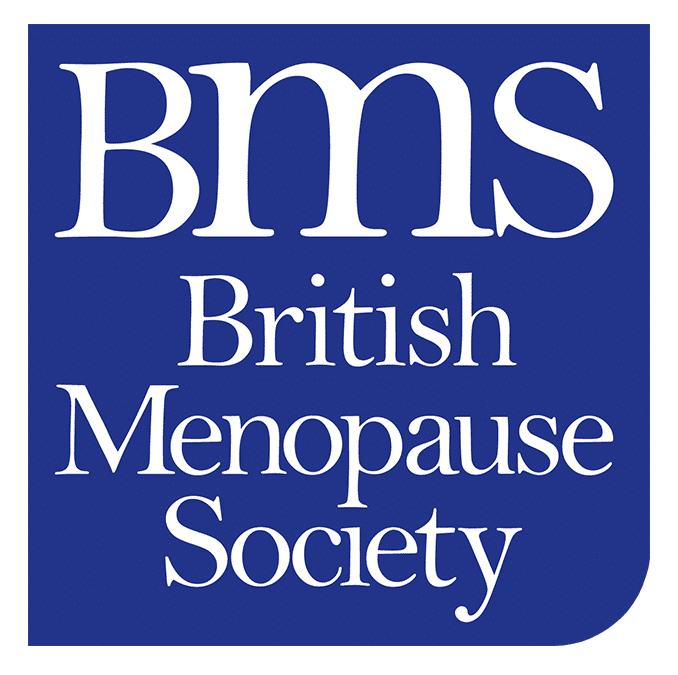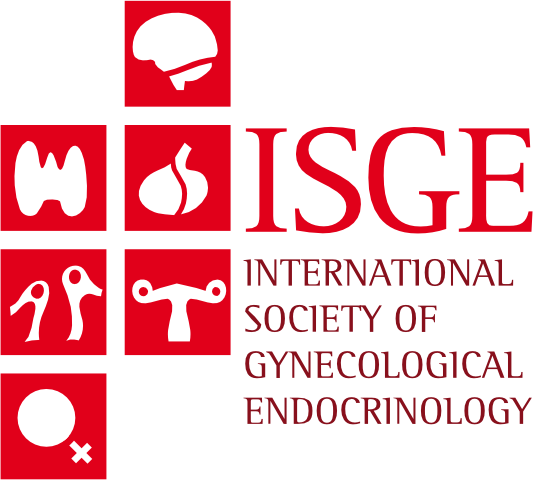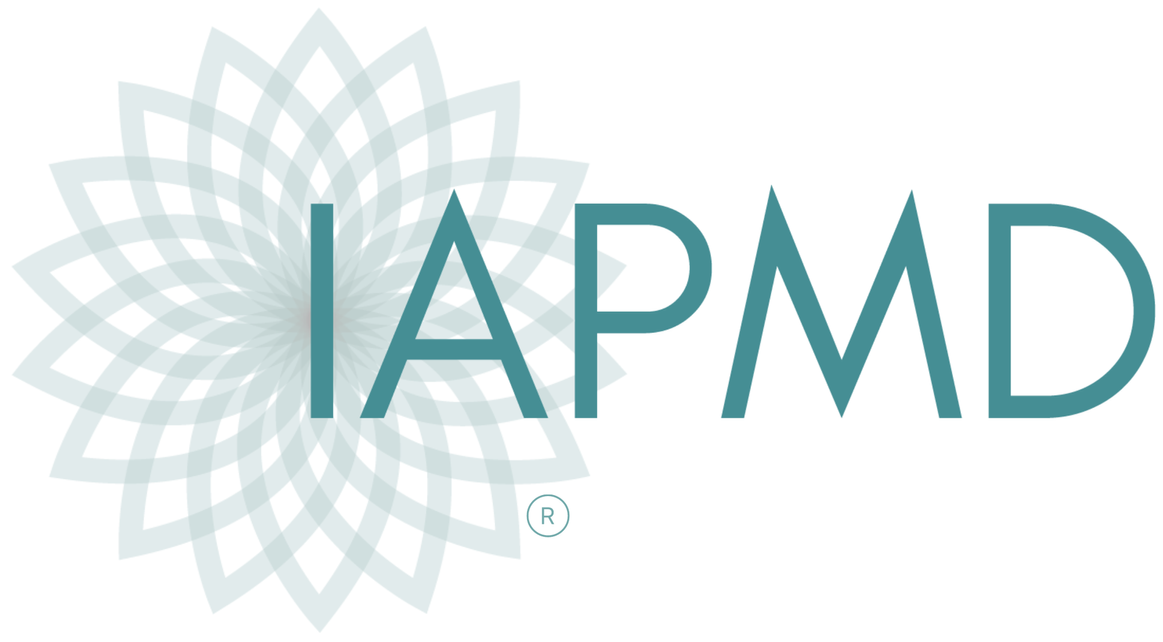About
Qualifications
MA (Oxon) MB BChir MRCGP (2016) DRCOG DFSRH BMS/FSRH AdvCert Menopause Care
ISGE Certified Practitioner
GMC number 7052668
Professional Memberships / Affiliations











Areas of Expertise
Menopause
Menopause (meno– relating to the menstrual cycle, –pause meaning stop) refers to the final menstrual period; technically, it is said to have occurred 12 consecutive months (one year) after the final period. This happens when the ovaries stop releasing eggs and levels of hormones (oestrogen, progesterone and testosterone) fall.
The vast majority of people affected by menopause identify as women, and the discourse around menopause tends to reflect this. However, menopause also happens to people of differing genders who were assigned female at birth (AFAB), including transmasculine, intersex and non-binary people.
For most women, menopause is a natural process. However, it can also occur as the result of a disease process or medical/surgical treatment e.g., for cancer, benign gynaecological disorders or PMDD.
The average age of menopause in the UK is 51 years of age. Menopause between the ages of 40 and 45 is called early menopause, and is estimated to affect around 12% of women in the UK. If it occurs below the age of 40 it is termed premature ovarian insufficiency (POI), or premature menopause.
Over 80% of women will experience some menopausal symptoms, but the severity of these can vary hugely. Symptoms can start several years before the final period (during the perimenopause) and may continue for months to years after menopause (during postmenopause). Surgical menopause – which occurs following surgical removal of the ovaries – results in immediate menopause, with no transitional phase, and hormone levels drop significantly within hours; symptoms can arise suddenly and may be severe.
The average length of time for women to experience symptoms is 7 years, but around 10% will experience symptoms for more than 15 years. In surgical menopause, without treatment, symptoms may be life-long.
I am qualified to advise on all aspects of menopausal health, and have particular interests in:
- POI and early menopause
- surgical menopause
- menopause following cancer treatment (including treatment for breast cancer)
- menopause and chronic conditions (e.g., endometriosis, PMDD, autoimmune disease, inflammatory bowel disease, osteoporosis, migraine, diabetes)
For more information on menopause, including lifestyle tips and HRT, please see here.
Premature Ovarian Insufficiency (POI)
Premature Ovarian Insufficiency (POI), previously referred to as premature ovarian failure (POF), occurs when there is loss of normal ovarian function below the age of 40. It affects at least 1 in 100 girls and women in the UK, and is estimated to affect around 3.5% of women globally.
POI can occur as a result of surgical or medical treatment for other conditions (e.g. endometriosis, cancer, PMDD), can be associated with autoimmune disease (e.g. type 1 diabetes, hypothyroidism, Addison’s Disease) or genetic abnormalities (e.g. Fragile X, Turner syndrome), or, rarely, may occur following severe infection (e.g. tuberculosis, malaria). However, for the vast majority of girls and women no cause for POI is found. This is then known as spontaneous, or idiopathic, POI.
Specialist management of POI is necessary, not only to help alleviate associated symptoms but also to reduce the risk of chronic disease (in particular heart disease, osteoporosis and dementia) in later life.
Infertility can be a distressing consequence of POI. Please note that I am not a fertility expert. If necessary, onward referral to specialists in this area can be made.
I see patients from across the POI spectrum, and am co-author of the book The Complete Guide to POI and Early Menopause (published in June 2022).
Premenstrual Disorders (PMS, PMDD & PME)
For many girls, women and AFAB (assigned female at birth) individuals, mild to moderate premenstrual symptoms, known as PMS, may be uncomfortable but manageable with lifestyle changes/dietary intervention/exercise. Hormonal or herbal treatments may also be helpful.
For others, symptoms can be extremely distressing, having such a debilitating impact on quality of life that up to 1 in 3 of those with Premenstrual Dysphoric Disorder (PMDD) (a severe form of premenstrual disorder) attempt suicide.
You are not alone.
Premenstrual Exacerbation (PME) can be difficult to differentiate from PMS/PMDD. PME occurs when symptoms of an underlying physical or mental health condition worsen in the luteal phase of the menstrual cycle, then improve (but do not disappear) with the period.
The only way to formally diagnose PMS, PMDD or PME is by tracking symptoms for at least two menstrual cycles. Correct diagnosis is needed in order to receive the most effective treatment.
I offer advice and treatment for all types of premenstrual disorder. Onward referral can be made for focused psychotherapeutic support, and/or consideration of surgery (if the latter is required for treatment-resistant PMDD).
Hormone Replacement Therapy (HRT)
Hormone replacement therapy (HRT) – or, simply, hormone therapy (HT) – is the most effective medical treatment for menopausal symptoms, and can also be used in the treatment of premenstrual disorders (PMS/PMDD/PME). HRT reduces the risk of chronic disease in women who undergo an early menopause and in those who have a diagnosis of POI.
I am able to advise on all forms of HRT including evidence-based body-identical HRT and testosterone replacement. Please note, I do not prescribe compounded, unregulated bio-identical HRT.
I do not currently offer hormone implants (pellets) or insertion of the Mirena IUS (a progestogen-containing “coil”, licensed for use in HRT), but can arrange local onwards referral for these as necessary.
For more information on HRT, please see here.
Alternatives to HRT
While HRT is the most effective medical treatment for menopausal symptoms, it is not suitable, or effective, for everyone. If this is the case, there are a number of non-hormonal medical, and non-medical, treatment options that can be considered (some of these can also be used alongside HRT, if relevant).
For those who are unable to take HRT, or who choose not to, I can advise on medical and non-medical alternatives to HRT.
The vast majority of prescribable non-hormonal treatments for menopausal symptoms have only been evaluated for their impact on vasomotor symptoms (i.e., flushes and sweats), but some also have a positive impact on mood, well-being, pain and sleep.
Certain herbal medications and supplements have been shown to help menopausal symptoms. These should not be taken together with HRT, unless specifically recommended by a suitably qualified health care professional, as this may lead to undesirable interactions (reducing the efficacy of HRT, or leading to unpleasant or harmful side effects).
Complementary therapies – e.g., yoga, acupuncture and cognitive behavioural therapy (CBT) offer a different approach to mainstream medicine, and are usually used alongside, or as well as, more conventional treatments.
If necessary, I can provide onward referral to a qualified medical herbalist, CBT therapist and/or psychologist.
Lifestyle Medicine
Lifestyle Medicine is evidence-based, clinical care that supports behaviour change through person-centred techniques to improve mental-wellbeing, social connection, healthy eating, physical activity, sleep and minimisation of harmful substances and behaviours.
There is evidence that women who follow a whole food plant-based diet suffer fewer menopausal and premenstrual symptoms, and have a lower risk of heart disease, diabetes and certain cancers. I have a particular interest in the role of plant-based nutrition in female hormonal health, especially the association between gut health and hormonal metabolism. I also have an increasing interest in the role physical activity, and our interaction with nature, in restoring and maintaining health and reducing the risk of disease.
In April 2018, I completed the eCornell Certificate in Plant-Based Nutrition, part of Cornell University, and have undergone further training in Lifestyle Medicine with the RCGP.
I am a member of Plant-Based Health Professionals UK and The British Society of Lifestyle Medicine.
I advise on all aspects of lifestyle medicine, and aim to make my patient consultations as holistic as possible. Onward referral to a dietitian and/or a coach can be made, if required.
Services
Individual consultations
I provide a comprehensive service covering all aspects of female/AFAB hormonal health, including menopause, perimenopause, POI and premenstrual disorders (PMS/PME/PMDD).
I have a holistic approach encompassing lifestyle measures (exercise, sleep hygiene, stress reduction) and nutritional guidance alongside evidence-based medical therapies, including hormone replacement therapy (HRT).
Treatments will be individualised and tailored to your own personal needs.
Please note, I am also able to advise on concerns relevant to vegan health in this area (e.g., hormonal treatments that do not contain animal products).
——-
I am delighted to announce that, from May 2024, I will be joining the team at Menopause Care. Led by Dr Naomi Potter, Menopause Care offer both online and face to face specialist menopause appointments to women, and people assigned female at birth (AFAB), from all over the country. Many of the Menopause Care doctors specialise in POI, PMS, PMDD and surgical menopause, in particular, as well as other areas of perimenopause and menopause: testosterone, histamine intolerance, migraines, breast cancer and more.
Online appointments (both new and follow-up) are now available to book. Please see here.
I will also be offering face to face consultations at a clinic in Norwich (location to be confirmed shortly).
If you are a pre-existing patient and have had an appointment with me any time since June 2022 you will be entitled to have a follow-up consultation. If your last appointment was prior to June 2022 new consultation fees will apply.
Education, Public Speaking & Media
I regularly speak to medical professionals, patient groups, the media and the wider public on both female hormonal health and lifestyle medicine; I also provide teaching to doctors in training.
——-
Please see: Resources – Dr Hannah Short for further information on menopausal & premenstrual health, including links to clinical guidelines, factsheets, podcasts and webinars.

